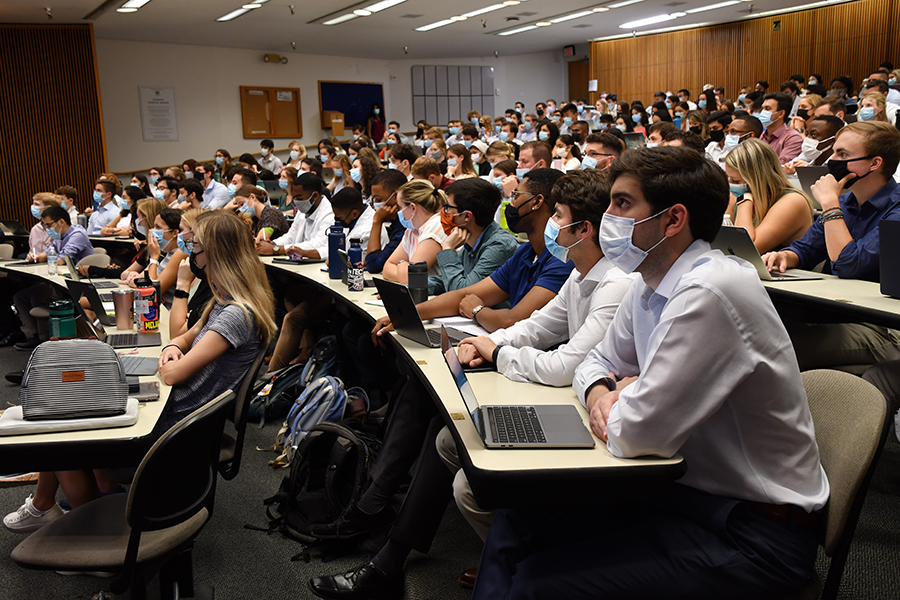Applications open for FAPE Awards

The McGovern Medical School Office of Professionalism is accepting applications for the second annual Faculty Award for Professionalism Education.
Applications will be accepted from faculty who have established one or more successful programs for promoting education in aspects of professionalism for learners enrolled in McGovern Medical School undergraduate or graduate programs. The recipient will be awarded $2,500 and recognized at an awards ceremony where they will be asked to provide a brief presentation on their contributions to professionalism education.
Nomination packets should include:
- A nomination letter briefly describing the faculty’s contributions to advance education in professionalism based on criteria/areas such as those listed below.
- Narrative from the faculty detailing their past and current efforts as well as plans for future endeavors to advance education in professionalism.
- Two letters of support from peers, mentors, past or current trainees, describing the faculty member’s impact in advancing education in professionalism.
- A CV of the faculty member.
Application packets must be submitted electronically to Alicia Howard at [email protected] by Nov. 18, 2022. For questions, email John Riggs, MD, at [email protected], or Vineeth John, MD, at [email protected].
Examples of professionalism education programs include, but are not limited to:
- Professional Identity Formation: Advancing learners understanding of and commitment to medicine’s social contract and professional expectations, socialization, role models and mentors, communities of practice, social justice, and race-conscious professionalism with an interactive program.
- Faculty Development in Assessing Professionalism: Implement a program in which faculty use formative and summative assessment of their learners’ professionalism, moral reasoning, etc. which promotes self-reflection.
- Organizational Professionalism Efforts: Develop and implement an educational strategy that reframes professionalism issues from an organizational and systems perspective, such as psychological safety/addressing hidden curriculum, defining and implementing professionalism standards, social justice/community engagement, or enhancing the work environment promoting professional growth through improved workflow and reduced clerical burden.
- Resiliency Building Initiatives: Develop and implement a program in which learners develop skills to thrive in stressful work environments. Although stress and conflict can be destructive and are often driven by systemic issues, growth and learning are typically uncomfortable and some programs can help learners flourish despite these challenges.
- Assess and Remediate Professional Lapses: Implement an explicit program that assesses professional lapses and how best to respond to the lapses that balances the growth needs of the learner and the commitment to the profession and society.
- Interprofessional Education: Develop and implement an educational program focusing on interprofessional teamwork, communication, and collaboration to improve the health of patients.
- Failing Successfully: Develop a program for advancing learners understanding of the role of failure in professional growth and developing coaching programs for emotional fallout of clinical outcomes with perceived or objective failures.